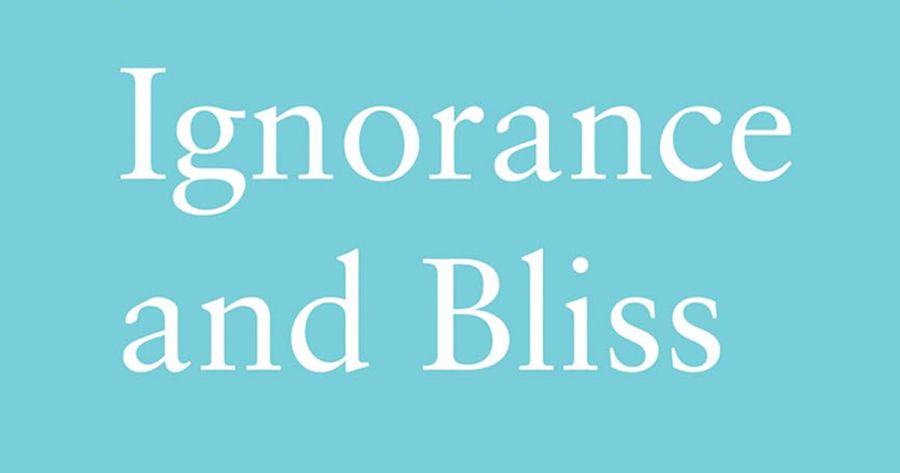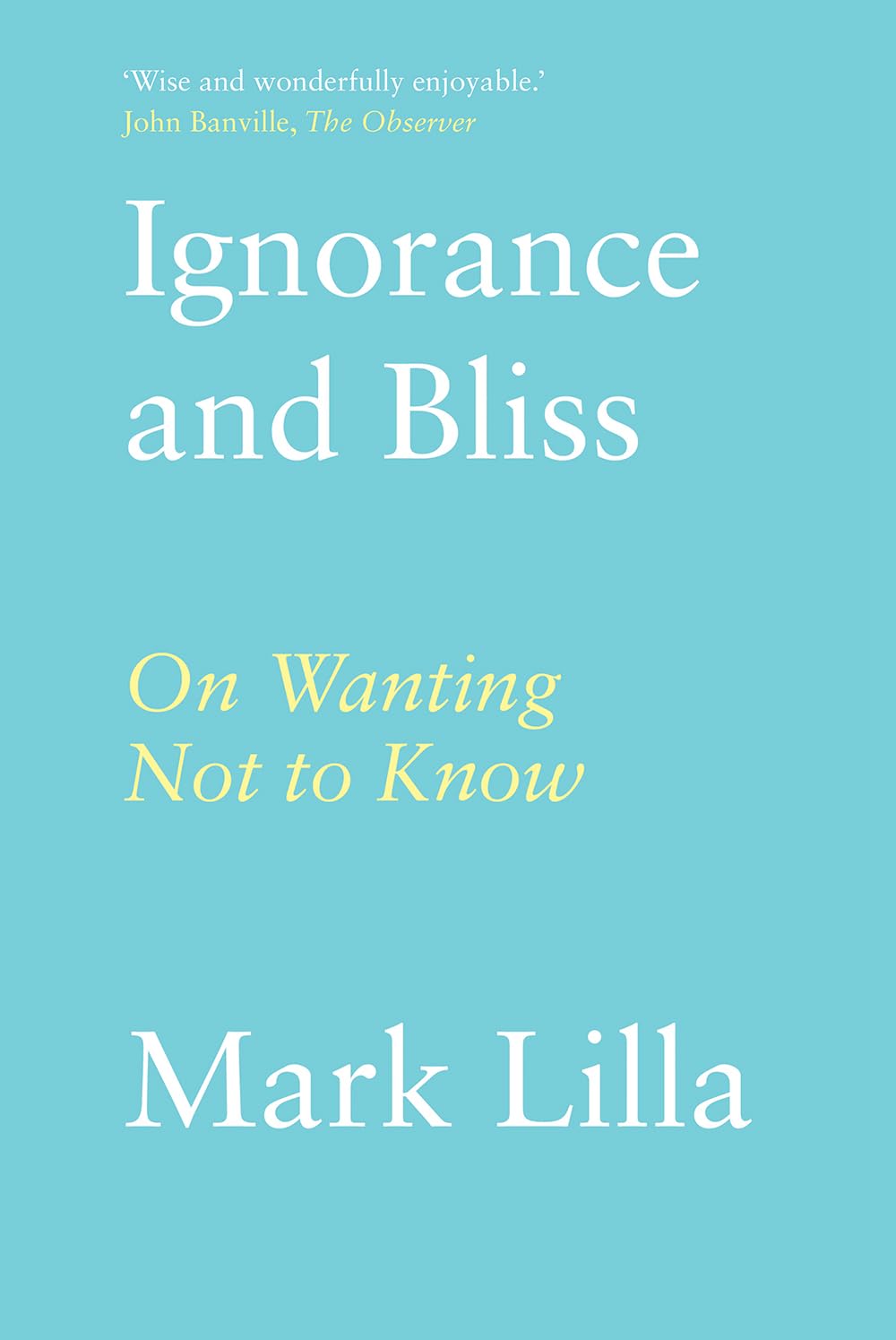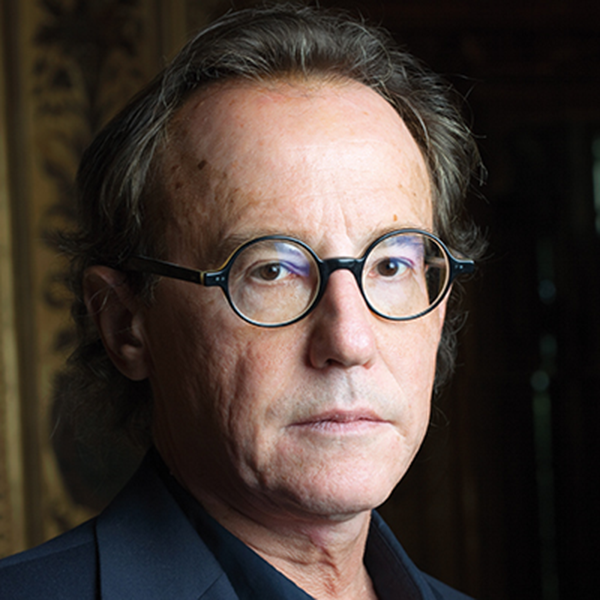
- Free Article: No
- Contents Category: Essay Collection
- Review Article: Yes
- Article Title: A blind eye
- Article Subtitle: The allure of not knowing
- Online Only: No
- Custom Highlight Text:
Every now and then, a truly profound book appears on a profoundly important subject. Mark Lilla’s Ignorance and Bliss is one such book. - Book 1 Title: Ignorance and Bliss
- Book 1 Subtitle: On wanting not to know
- Book 1 Biblio: Hurst, $49.99 pb, 256 pp
- Book 1 Cover Small (400 x 600):

- Book 1 Cover (800 x 1200):

- Book 1 Readings Link: https://www.readings.com.au/product/9781805264071/ignorance-and-bliss--mark-lilla--2025--9781805264071#rac:jokjjzr6ly9m
Professor of Humanities at Columbia University – I will return to the significance of this later – Lilla is what many in Australia would call a public intellectual. But whereas those who assume this mantle here often tend to be political or moral crusaders, he is the real article.
The subject of Ignorance and Bliss is what Sigmund Freud called denial and Lilla calls the human will to ignorance – or our wanting not to know the truth – about ourselves and the world – and the power of this. As the first of his many (perhaps too many) telling epigraphs has it, this one from George Eliot’s Daniel Deronda (1876): ‘It is a common sentence that Knowledge is power; but who hath duly considered or set forth the power of ignorance?’ Following Friedrich Nietzsche but contrary to Michel Foucault, Lilla holds that the drive not to know is more important than the drive to know because it is the more influential.
Lilla has had this book on his mind, on and off, for twenty-five years. He was increasingly struck by the fact that whereas the Western philosophical tradition and especially that of the Enlightenment (whose ambivalent legacy has preoccupied him throughout his career) has a lot to say about the acquisition of knowledge, it has relatively little to say about acquiring knowledge of our will to ignorance, or that what it has had to say is lacking in depth. Lilla also came to realise that in order to understand the will to know and not know, we need not only philosophy but psychology as well, given that acquiring and resisting knowledge are deeply emotional experiences.
This book is deeply informed by psychoanalysis, though for the most part Lilla does not use its technical language. Nor does he overstate its importance. ‘Freud did not reveal anything about the psychological cost of human self-evasion that Augustine hadn’t already known and experienced,’ he acknowledges. ‘They both saw the same thing: creatures … most fear what they most need.’ For Lilla, like Freud, our never-ending struggle to know – or, more properly, to acknowledge – the truth about ourselves is an ethical project: it is the only way we can become truly responsible moral agents.
Yet this book is also the product of a historical sensibility. Arguably, this is the source of its remarkable strength. Lilla considers not only the way each of us resists knowing ourselves but also how the will to ignorance influences the way we relate to the world more generally and how that in turn affects religion, politics, and the like. ‘It is one thing to resist … knowledge of the inner self,’ he observes. ‘It is another thing, initially more puzzling, to resist knowledge of abstract truths or external reality … But we do resist with equal vigour.’ Consequently, Lilla speaks of the polymorphous role of the will to ignorance in human affairs.
Lilla’s beautifully crafted book principally consists of five essays of roughly equal length, each a foray into a particular manifestation of the will to ignorance that has caught his attention – evasion, veils, emptiness, innocence, and nostalgia – and which provides him with an occasion to reflect on how that drive operates and what happens when it does. He describes the book as a ramble rather than a journey to a fixed destination, yet the essays are best read in the order they appear as each subtly informs the one that follows.
Lilla seeks to explore (unusually, the word is apt in this case) each of his themes through material he has come across in many years of reading works of the imagination: ancient myths, most importantly that about the archetypal figures of Oedipus and Prometheus; religious scripture, especially the Hebrew Bible and its stories, for example about King David; epic poetry, most notably Homer’s Odyssey and Virgil’s Aeneid; modern plays such as Henrik Ibsen’s The Wild Duck (1884); novels, including James Baldwin’s Giovanni’s Room (1956); and poems like Friedrich Schiller’s ‘The Veil of Isis’, though he also discusses the work of philosophers, most notably Socrates. (The book’s dedication reads: ‘For Diana Cooper: Artist.’) Throughout, Lilla draws attention to the words of ancient sages, which he contrasts with what he calls contemporary bagpipes, but he is especially interested in pointing up and unpicking paradoxes of one kind or another.
Much of Lilla’s treatment is extraordinarily subtle. For example, in his chapter on veils, which is perhaps the most important one in the book, he suggests there can be both advantages and disadvantages in not knowing and, more specifically, in either choosing not to know or accepting that there are limits to what we can know. He notes that this is a form of wisdom that is hard to sell in democratic societies that value transparency, cherish autonomy, and abhor authority. ‘The urge to know, to be enlightened about what is,’ he points out, can readily become confused with the urge to freedom and thereby degenerate into ‘a blind act of self-assertion’.
This has both an individual and a collective dimension. Lilla argues that since the Enlightenment we have been living in a world that is bereft of concepts, even language, for contemplating dispassionately both the advantages and the disadvantages of curiosity and taboos. He makes much the same argument in regard to remembering and forgetting. In an arresting phrase, he suggests that those suffering from political nostalgia are ‘sick with history itself’.
While this book’s subject is unquestionably timeless in the sense that it is eternal, it is also timely. In this, an age of uncertainty, the denial of evident truths has, more than usually, the upper hand over the wish to know. And the stakes are higher than they have ever been before. ‘Given the real prospect of environmental collapse owing to global warming,’ Lilla remarks, ‘one would think that this would be a good time to reflect dispassionately on the consequences of our wills to know and not to know.’
Lilla is particularly concerned about the degraded state of our politics. Not surprisingly he refers to both its populist and reactionary strains. Yet he also suggests that we are not well equipped to think about and confront many of the intractable problems that beset us: our contemporary moral discourse of rights and freedom is inadequate to the task, having displaced earlier political languages that include those steeped in religion and metaphysics.
 Mark Lilla (courtesy of Hurst)
Mark Lilla (courtesy of Hurst)
Ignorance and Bliss is not only immensely wise; it is eminently readable. And Lilla wears his erudition lightly, his deeply rigorous and vigorous treatment leavened with numerous witty and wry asides. Here is one example (from the essay on evasion): ‘To accept knowledge of our limitations and our desires is difficult. But to receive in recompense knowledge of the world itself – who could resist that? Just about everyone.’ And here is another (from the essay on innocence):
In the Greek and even in the Hebrew tradition it is taken for granted that there is no prospect of perpetual peace on earth, given the nature of human beings and their societies. Conflict is inevitable in political affairs, genuine interests clash, power corrupts, and force and deception employed by the unjust must be met by force and deception employed by the just. There are wolves out there. It has been claimed that by refusing to accept this tragic vision complacently, the Christian moral revolution shifted the balance in favour of protecting innocent lambs, whose well-being must be our first concern, even in war. That is true. But it also bred the illusion that shepherds could afford to be innocents, too. Which was very good news for wolves.
While this is not its purpose, this book implicitly raises vital questions about the nature of the university in our times and especially the role of the humanities and one of its most public-facing disciplines. Lilla has a position in History at Columbia University but is a professor of humanities. In reading Ignorance and Bliss, I was reminded of the writings of Hayden White (1928-2018), who famously lamented that history lost its way after it became a discipline in the nineteenth century, largely because it shed its connection with literature and its existential concern with the traditional topics of myth, religion, and metaphysics: loss, violence, absence, death, and so forth.
White believed that professionally trained historians no longer possess the necessary resources to be able to make ethically responsible judgements and so can no longer honourably participate in discussions of the major political issues that beset any society. He insisted, for example, that no amount of professionally established historical fact can adjudicate contesting claims between Palestinians and Israelis. (I assume I need not spell out the local comparators.) For the discipline of history to be able to play a role in such conflicts, White argued, it would have to return to its traditions, which would provide it with greater artistic integrity and poetic force. (He would dismiss any notion that this is merely a matter of good storytelling and fine writing.) Without this, it is prone to being another arm of political correctness. Ethics, White pointed out, ‘is quite different from morality that, on the basis of some dogmatism, insists on telling us what we must and must not do in a given situation of choice’.
White was of the view that history needs to return to the humanities and the humanities needs to be intimately linked to the arts. He would surely have welcomed Ignorance and Bliss and urged us all to read it.


Comments powered by CComment